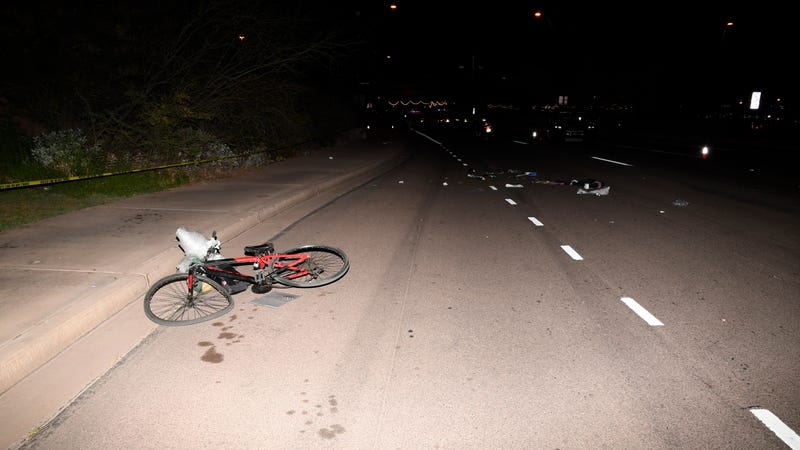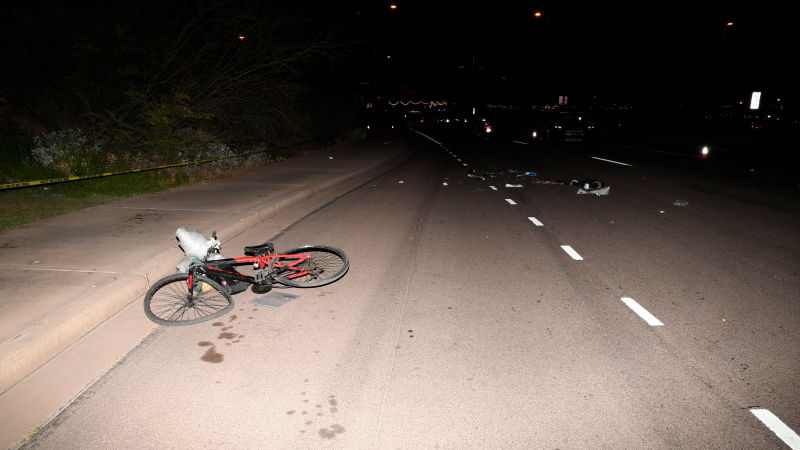
Ride-hailing Uber has been found not criminally liable in the death of 49-year-old Elaine Herzberg, who tragically became the first known pedestrian to be killed by a self-driving vehicle when she was struck by an Uber test SUV in Tempe, Arizona in March 2018.
Per Quartz, Yavapai County attorney Sheila Sullivan Polk—the official handling the investigation after the Maricopa County attorney’s office recused itself for having coordinated an anti-drunk driving campaign with Uber—wrote in a brief letter dated March 4 that her office had found “no basis for criminal liability for the Uber corporation.” She added, however, that there remain unresolved questions about what the driver would have been able to see before the crash:
Polk said her office concluded that the “collision video, as it displays, likely does not accurately depict the events that occurred.” She didn’t elaborate further on possible discrepancies, but recommended Tempe police get an expert analysis of what the vehicle’s driver should have seen at the time of the accident, given vehicle speed, lighting conditions, and other factors.
Advertisement
It was never really clear what would have happened if Uber was found criminally liable under state law, which would be unusual, according to Law & Crime:
To be clear: the concept of corporate manslaughter is a legal principle in theory. But the concept is more or less foreign to U.S. law and it’s not quite obvious who would be served with an indictment in the event Uber was charged with a crime. Other questions arise: Who would be arrested over the death? Does Uber’s CEO have a jumpsuit in his future? The potential for a corporation to be charged with manslaughter raises multiple issues of novelty and legal first impressions.
Polk did not elaborate on her reasoning in the letter, but did add that since it has determined Uber cannot be held criminally liable in the incident, Maricopa County officials are now free to investigate whether the operator was negligent.
Advertisement

The crash occurred when an Uber self-driving Volvo failed to detect and ran into Herzberg, who was crossing the street with her bicycle. Police investigators found that the human operator inside the car, Rafaela Vasquez, may have been streaming reality show The Voice at the time of the crash—though they also found Uber self-driving vehicles did not indicate to drivers when they should take manual control to avoid a collision. The Volvo in question detected something in front of it six seconds before the crash but did not properly recognize it was a person, only concluding emergency braking maneuverwas necessary 1.3 seconds before hitting Herzberg (with the car’s built-in automated emergency brakes having been deactivated by Uber).
Uber settled with Herzberg’s family last year for an undisclosed amount. It also adjusted its safety protocols, fired 100 self-driving car operators to replace them with 55 “mission specialists,” and halted testing until December 2018, when it renewed the program in a scaled-back manner.
Advertisement
However, that same month, reports emerged in the Information that Uber manager Robbie Miller had warned other senior employees before the fatal collision that the self-driving vehicles were “routinely in accidents resulting in damage.” He added that accidents were occurring “every 15,000 miles,” and that some drivers “appear to not have been properly vetted or trained.” The Information corroborated the details of Miller’s allegations with five current and 15 former Uber employees.
As Reuters noted, the National Transportation Safety Board and National Highway Traffic Safety Administration are still investigating and may reach different conclusions about who is to blame. Uber lost approximately $3.3 billion last year, Reuters added, and investors looking to buy into its forthcoming initial public offering (which it hopes will reach $120 billion) may view the self-driving program’s massive budget skeptically.
Advertisement















